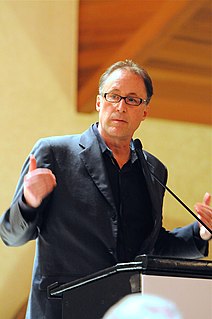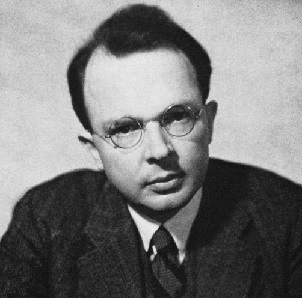A Quote by Steven Pinker
Though knowledge itself increasingly ignores boundaries between fields, professors are apt to organize their pedagogy around the methods and history of their academic subculture rather than some coherent topic in the world.
Related Quotes
While the universities are increasingly corporatized and militarized, their governing structures are becoming more authoritarian, faculty are being devalued as public intellectuals, students are viewed as clients, academic fields are treated as economic domains for providing credentials, and work place skills, and academic freedom is under assault.
General Systems Theory is a name which has come into use to describe a level of theoretical model-building which lies somewhere between the highly generalized constructions of pure mathematics and the specific theories of the specialized disciplines. Mathematics attempts to organize highly general relationships into a coherent system, a system however which does not have any necessary connections with the "real" world around us. It studies all thinkable relationships abstracted from any concrete situation or body of empirical knowledge.
There are certainly times in history where power associates itself closely with fields that we would call the humanities, like rulers surrounding themselves with philosophers and poets, or playwrights. We do not live in that moment, and the best way to gauge the proximity of an academic field to power is by salary.
I've always loved history, from my youngest memories. My father enjoyed the great stories of history, like Hereward the Wake, Robin Hood, and Richard the Lionheart, and he shared them with me. I went on to do a degree in history, though I found it rather dry, because it was mostly about politics rather than dashing individuals!
For years I have told my students that I been trying to train executives rather than clerks. The distinction between the two is parallel to the distinction previously made between understanding and knowledge. It is a mighty low executive who cannot hire several people with command of more knowledge than he has himself.
Pedagogy of the Oppressed resonated with progressive educators, already committed to a 'child-centered' rather than a 'teacher-directed' approach to classroom instruction. Freire's rejection of teaching content knowledge seemed to buttress what was already the ed schools' most popular theory of learning, which argued that students should work collaboratively in constructing their own knowledge and that the teacher should be a 'guide on the side,' not a 'sage on the stage.'
The difference between you, if you consider yourself not enlightened, and an enlightened master is not that the enlightened master has more knowledge. University professors have knowledge, and many enlightened masters have very little knowledge. Jesus probably had less knowledge than any university professor alive today in terms of raw information. Even a relatively uneducated person has more information than Jesus or Buddha ever had about things, such as political things and so on.
I had studied history at Brown and didn't feel like doing anything with it. What does one do with a history degree besides become a historian? And the professors in school, it seemed like they were just writing books for other professors to comment on, and vice versa - it was the most self-referential, boring world you could ever imagine.
And if there be any addition to knowledge, it is rather a new knowledge than a greater knowledge; rather a singularity in a desire of proposing something that was not knownat all beforethananimproving, anadvancing, a multiplying of former inceptions; and by that means, no knowledge comes to be perfect.





































